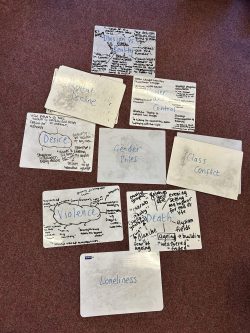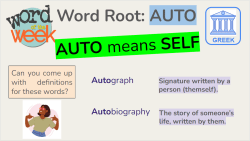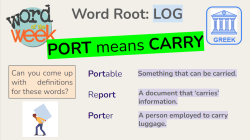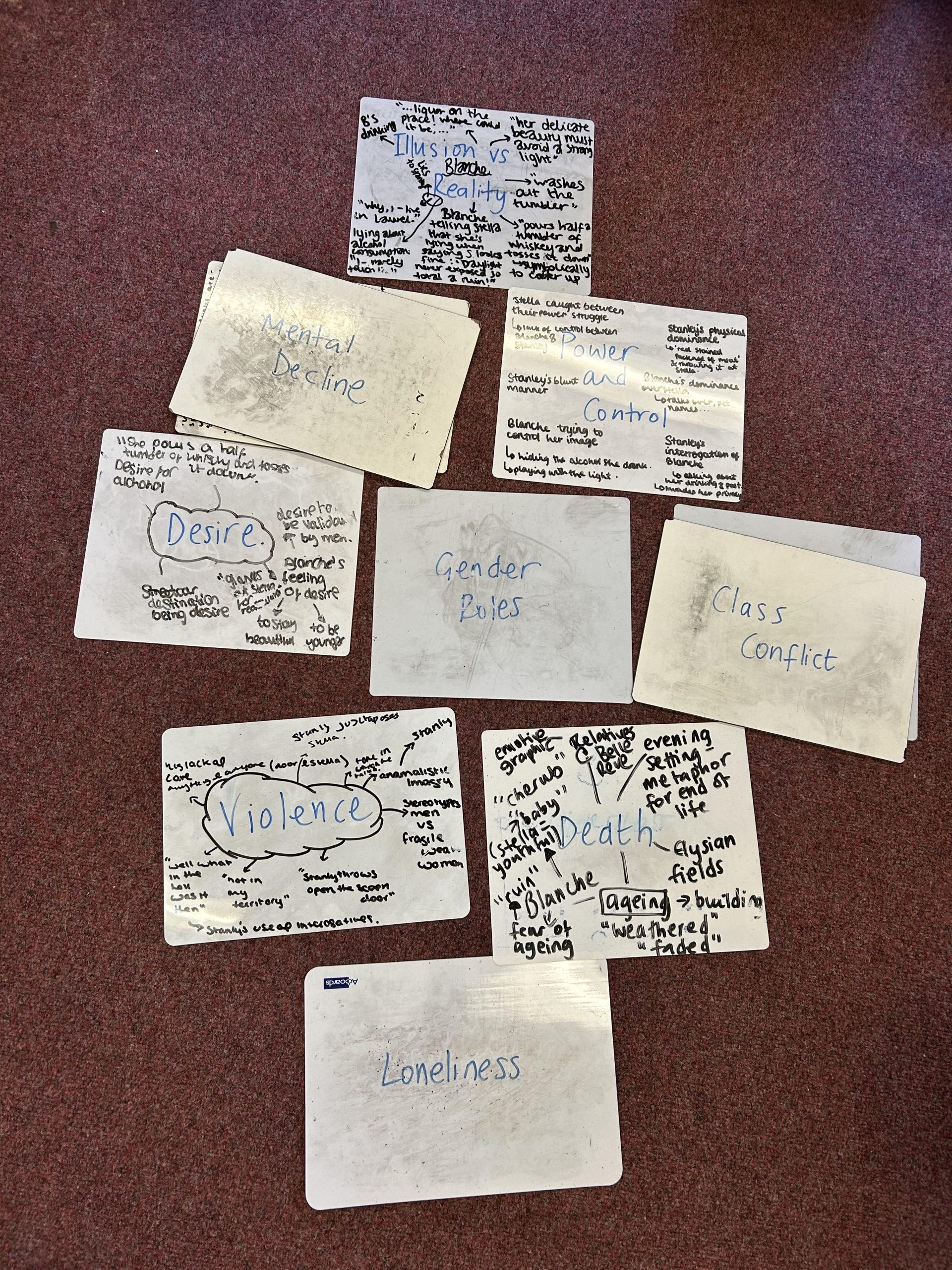Sixth Form English: Year 13 Lead the Way in Independent Thinking
Year 13 English Language and Literature students have been working exceptionally hard this term, and a recent lesson on A Streetcar Named Desire showcased just how confident they...
Filter by Category
Filter by Author



























































































































































































Year 13 English Language and Literature students have been working exceptionally hard this term, and a recent lesson on A Streetcar Named Desire showcased just how confident they...
Posted by Amy Druce

As part of our Word of the Week programme, students explore how understanding word roots can help them unlock the meanings of unfamiliar words across all their subjects. By...
Posted by Amy Druce

All year, students have been building their vocabulary by exploring root words – the core parts of words that carry meaning. This ongoing focus helps students decode...
Posted by Amy Druce

As part of their GCSE English curriculum, Year 10 students are currently studying a range of poetry from 1900 onwards focused on the themes of ‘Power and Conflict’....
Posted by Amy Druce

Prefixes of the Week: PRO & OMNI This past fortnight, we have introduced two more powerful prefixes: PRO – Meaning for or forward. Examples: Promote (to support or encourage)...
Posted by Amy Druce

Prefixes of the Week: DIS & CON This past fortnight, we have introduced two more powerful prefixes: DIS – Meaning not or opposite of. Examples: Dislike (not liking)...
Posted by Amy Druce

This term, we’re diving into prefixes—word parts added to the beginning of a word to change its meaning. Over the last two weeks we have explored two powerful...
Posted by Amy Druce

Have you ever thought about how many words start with AUTO? This root comes from Greek and means “self.” You see it everywhere—from automobile (a vehicle that moves by...
Posted by Amy Druce

Word Root of the Week: Port This week’s word root is port, which means “to carry.” You may not realize it, but port shows up in many words you use every day. For example,...
Posted by Amy Druce
This week at Bushey Meads, our students have been stepping up their vocabulary skills with the Latin root GRESS, which means “step.” As we work together in the daily...
Posted by Amy Druce
Year 13 English Language and Literature students have been working exceptionally hard this term, and a recent lesson on A Streetcar Named Desire showcased just how confident they have become as learners.
Following on from the whole-staff focus on ‘getting students thinking hard’ at our November staff conference, students took part in a series of structured talk tasks designed to deepen their thematic understanding of the play.
To begin, students collaborated in groups on a Diamond 9 activity, using mini whiteboards to debate the relative importance of key themes such as desire, power and gender in the opening scene. This encouraged careful justification, challenge, and refinement of ideas as students negotiated their rankings together.
They then moved into a fast-paced ‘speed dating’ discussion, where each student acted as an expert on a particular theme. In quick fire rounds, they shared their independent ideas and scene analysis, helping their peers build a broader understanding of how Williams crafts meaning across the text.
To ensure this thinking continues beyond the lesson, students are now contributing to a shared tracking table, with each member of the class responsible for charting the development of one theme across the entire play. This will act as a live, evolving resource to support their reading and revision in the weeks ahead.
It was a pleasure to see students taking such clear ownership of their learning: leading discussion, thinking critically, and supporting one another in becoming independent, empowered readers of literature.
![]()

‘Pride and Prejudice’ (1813) by Jane Austen Enduringly popular and a great introduction to Jane Austen, the novel is set in rural England in the early 19th century. It follows the...

At Bushey Meads, we are passionate about giving our students leadership roles within the school. We are excited to welcome Finn and Erin, both English A-level students, to the...